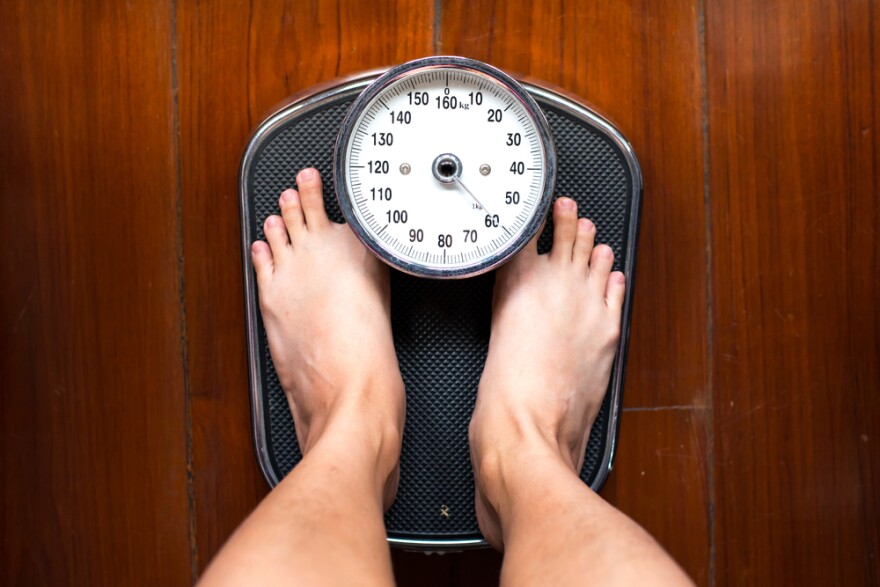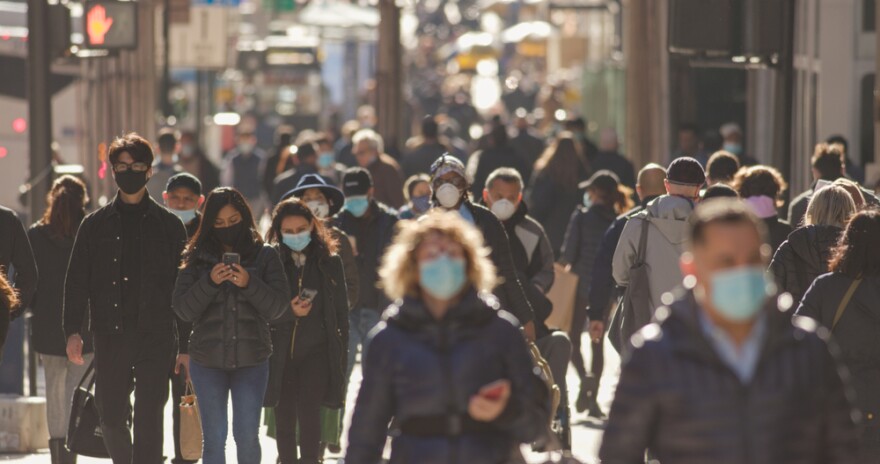KERA Vital Signs host Sam Baker spoke with North Texas doctors about health concerns unrelated to COVID-19 the pandemic has left us with — and one way pandemic practices may have even helped us.
The Quarantine 15 (or Pandemic Pounds)

An online survey of more than 7,700 adults found a majority gained at least one-and-a-half pounds per month during the pandemic.
“Through the months, they're not working or working from home, then less active,” said Dr. Tu Le, an interventional cardiologist at Texas Health Harris Methodist Hospital in Hurst-Euless-Bedford. “They are eating differently because they have more free time and choices of food. The frequency of their food along with the portion size has really impacted their weight.”
Dr. Le worries those extra pounds can lead to obesity and cardiovascular diseases such as stroke, heart attack, and other conditions. But he said you can do something about it.
Read Dr. Le's advise for losing those pandemic pounds.
Children Experiencing Mental Health Issues

More than half of adults with children under 18 at home told the American Psychiatric Association the pandemic has caused mental health problems for one or more of their children.
A behavioral health care manager at Children’s Health thinks fear of the virus accounts for part of that, but she also suspects changes in life at home and school.
“That normal routine of getting up in the morning, getting ready, getting out the door, that's gone,” said Vanessa Simpson. “Engaging with classmates and teachers in person, that was all disrupted because it was all virtual and online.”
Read more about the mental health challenges children have been facing.
Delaying Health Care To Avoid COVID

Early detection is key to diagnosing and treating disease — and saving a life.
“During this pandemic, your mind is somewhere else,” said Dr. Allison DiPasquale of Texas Breast Specialists. “You may not be remembering, 'Oh, hey, it's time for my mammogram.'”
The breast surgeon said fear of getting COVID-19 at the doctor’s office caused some patients to delay or cancel mammograms. She said her office quickly responded with improved safety precautions. The wait could lead to cancer diagnoses at later stages.
Read more about why doctors say now is not the time to delay a mammogram.
Broken Heart Syndrome

Broken heart syndrome (or stress-induced cardiomyopathy) is heart dysfunction brought on by some form of emotional or physiological stress.
A recent study suggests stress from the pandemic can contribute to this problem.
“We have seen in our country job loss, higher rates of depression, higher rates of suicidality, higher rates of domestic violence,” said Dr. Kami Banks, a cardiologist with Texas Health Presbyterian Hospital in Allen. “And we may not be dealing with that stress as well as we could be. Anytime that happens, then you can be at higher risk for things like stress-induced cardiomyopathy.”
Read more about broken heart syndrome.
Another Reason To Follow COVID Safety Precautions

Hard to imagine, but some good may have come out of the pandemic: Fewer hospital cases of flu in 2020 than in the previous season.
"We've had only 67 positive flu tests for this whole season. That's compared to more than 3,700 positive flu tests year to date last season,” said Dr. Carolee Estelle, an infectious disease specialist with Parkland Health and Hospital System in March of 2021. “And we're testing somewhat more this season, comparatively speaking.”
Dr. Estelle said public health interventions put in place for COVID - masking, social distancing, working at home, and good general hygiene — may have helped keep flu at bay. She said using those same protocols in the future would be a good strategy.
Read more from Sam Baker's conversation with Dr. Carolee Estelle.
Got a tip? Email Sam Baker at sbaker@kera.org. You can follow Sam on Twitter @srbkera.
KERA News is made possible through the generosity of our members. If you find this reporting valuable, consider making a tax-deductible gift today. Thank you.







